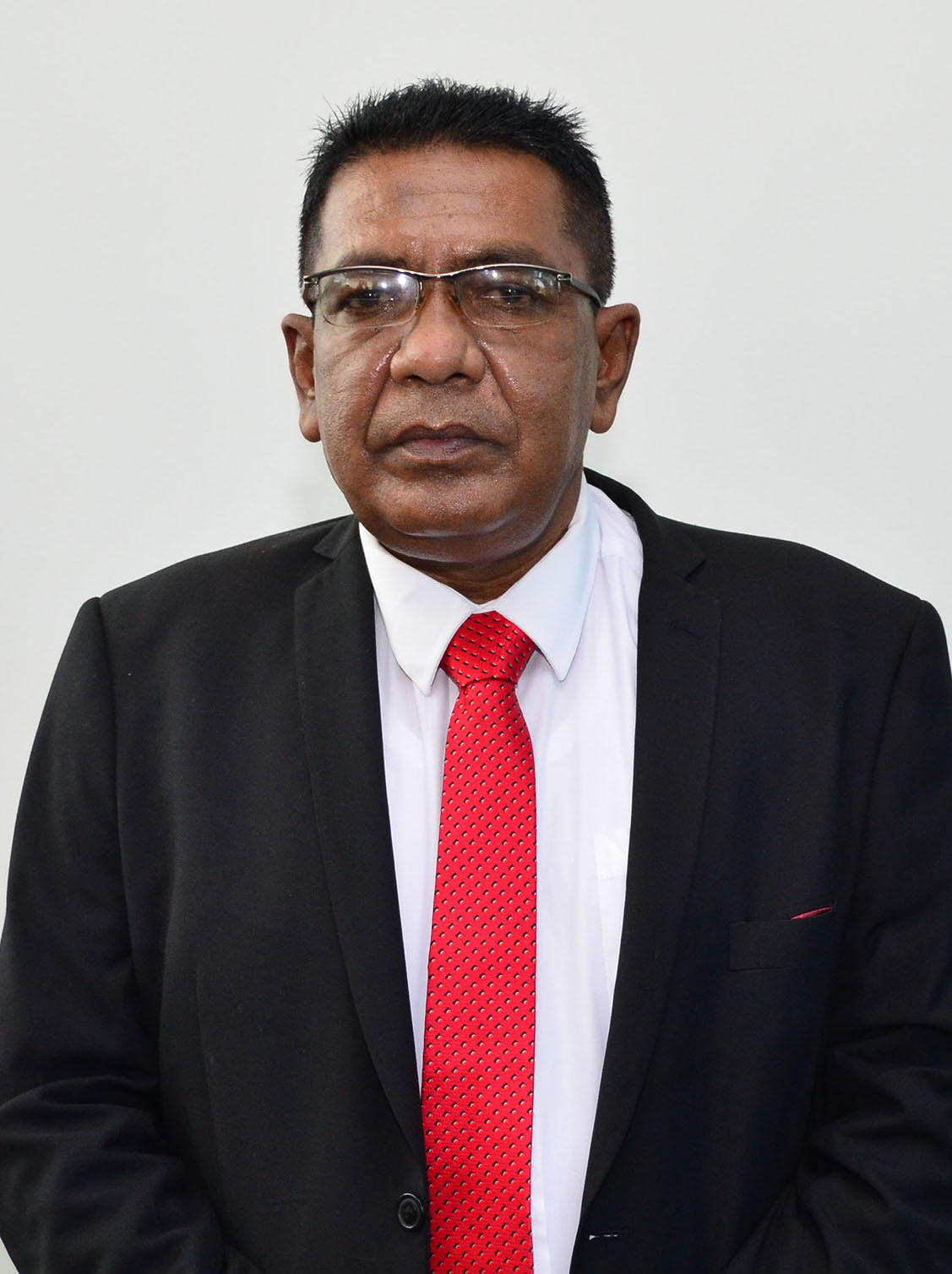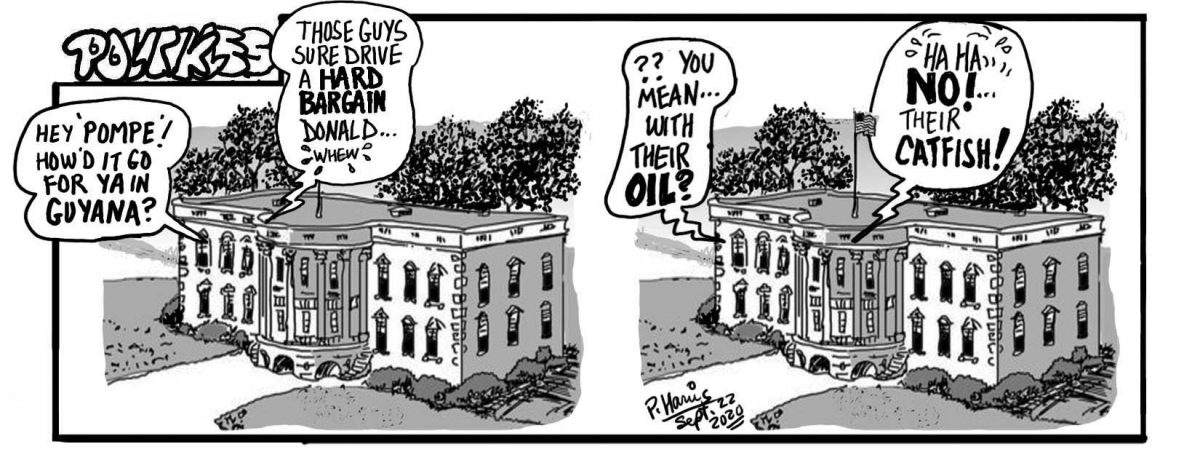Pompeo like eat catfish tuh
Sep 19, 2020 , Source - Kaieteur News Online - https://www.kaieteurnewsonline...ike-eat-catfish-tuh/
Dem Boys Seh…
Dem boys nah know. So dem boys can’t seh. But people asking, so dem boys gat fuh talk something.
People wan know wah Aunty Priya tell Pompeo. Dem boys remember how she bin let loose pon a former Ambassador. But dis time nah lang time. Dem boys sure, she had nothing but kind words to seh to Pompeo.
Pompeo come and gone and we deh in de same braps. De only thing dat change is dat de man talk how he used to catch catfish. Dem boys know if you like catch fish, you most likely gat fuh like to eat it.
De Pompeo man therefore gat fuh like how de catfish taste and so he promise dat he can review de ban wah de American bin put pon we catfish.
All it tek was one meeting with Prezzie Ali and progress mek. It put to shame dem other ones wah bin in deh fuh five years and could not lift a finger fuh change nothing.
But old people seh wah taste sweet in de mouth does sour in yuh belly. De catfish gan now guh overseas. And duh mean dat dem boys gan gat to pay more fuh eat catfish.
To tell de truth, dem boys bin glad when de ban did get impose because dem boys bin able to afford fuh eat certain fish. Now dem boys gat to go back to dem cheap fish.
Eat all de catfish yuh can because soon when de exports start back is only shark and banga gan sell cheap.


